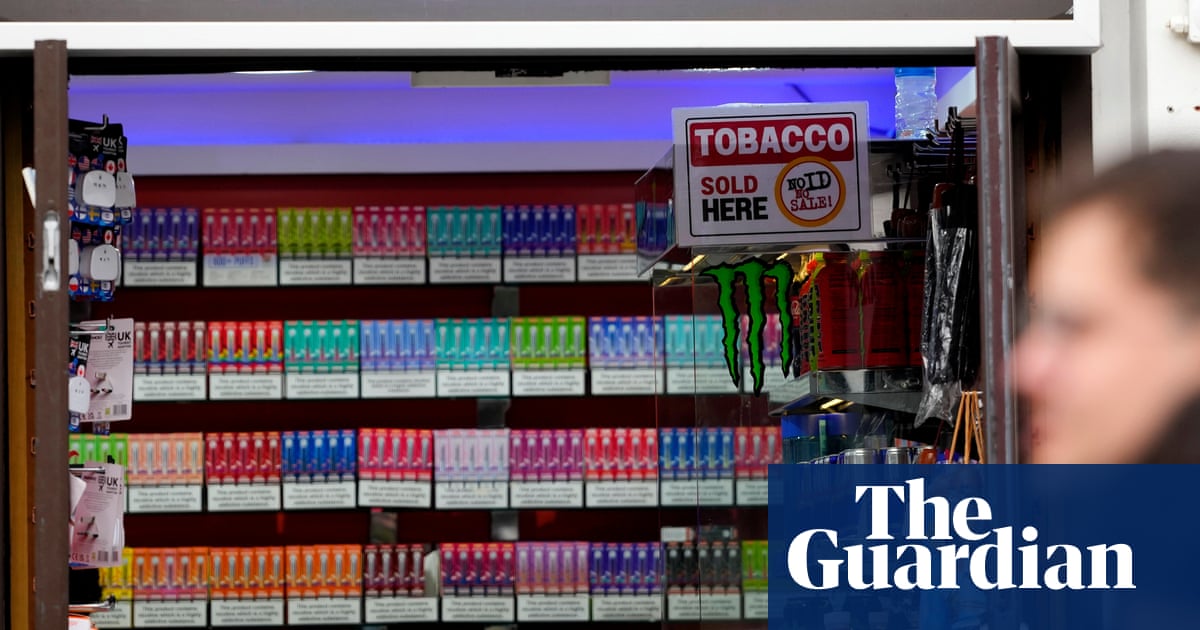Vapers have been warned not to stockpile soon-to-be-banned disposables before Sunday’s outright ban as they “pose a significant fire risk”.
The Local Government Association (LGA) said users were stocking up on single-use e-cigarettes while they could, as shops would face fines for selling them after the ban takes effect.
And although the temptation from consumers may be to hoard their favourite flavours, the LGA said the lithium batteries inside could become a hazard if not stored correctly.
David Fothergill, the chair of the LGA’s community wellbeing board, said: “We want to remind businesses to ensure all remaining stocks of disposable vapes are sold, and only buying vapes that follow the new regulations.
“If businesses have any single-use vapes in their possession after Sunday, they will not be able to sell them to shoppers and must ensure they are stored and disposed of safely.
“We would also urge caution to anyone stockpiling disposable vapes. Failing to store disposable vapes correctly could cost lives, given the significant fire risk they pose.”
According to research by Haypp, an online nicotine retailer, 82% of disposable vape users are planning to stockpile.
The ban is designed to reduce youth vaping and tackle the environmental damage caused by millions of the devices being thrown away each week.
Retailers have been told to clear remaining stock and ensure leftover products are disposed of safely.
Material Focus, a non-profit focused on improving electrical recycling in the UK, said 5 million disposable vapes were incorrectly discarded each week in the UK in 2024 – nearly four times higher than the previous year. Many contain lithium-ion batteries, posing fire risks and leaching toxic chemicals into the environment when binned incorrectly.
Scott Butler, the executive director of Material Focus, said: “Thirteen vapes every second are being incorrectly gotten rid of, and that’s a huge environmental pollution problem. The liquid in many vape batteries is toxic and could run into waterways, as well as harm animals. It’s also a significant fire risk because lithium batteries are known to cause fires when crushed with general waste.”
“Vapes are a huge environmental pollution problem, so we hope the ban goes some way to reducing waste,” he added.
Disposables are also the most common device used by children who vape, with more than 20% of UK children having tried vaping, according to Action onSmokingand Health (ASH). The devices are often sold in sweet flavours and brightly coloured packaging, which campaigners say appeal to underage users.
Under the new rules, only vapes that are rechargeable, refillable and fitted with a replaceable coils (the heating element) will be allowed.
Experts worry the industry may have already found ways to sidestep the UK government’s ban, while cheaper vape imports rerouted from the US risk pushing down prices further.
There are also concerns that newUS tariffs on Chinese imports may increase cheap vape shipments to the UK, making enforcement of the ban more difficult.
Hazel Cheeseman, the deputy chief executive of ASH, said: “There’s already a sizeable illegal market. Whether the disposable vapes ban makes that risk greater, I guess that depends on how quickly the legitimate retailers are making products available to people that suit their needs.
“People don’t necessarily want to go looking for illegal products if they can buy legitimate products in their local corner shop or supermarket that meet their needs, why would they go off looking for dodgy ones?”
There are also concerns about policing the vapes at borders and ports, said Kate Pike, the lead officer for vaping at the Chartered Trading Standards Institute, who stressed that stronger import controls would be essential.
“We have extra funding to do more at ports and borders … From our point of view, it’s important, because obviously it makes a big difference if we can stop [illegal vapes entering the country],” she said.
